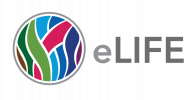© Pint of Science, 2024. All rights reserved.
We have all heard of cancer and it has touched many of our lives. This evening will focus on how cutting edge research being done right here in Bristol is trying to get to the bottom of cancer. We will look into how scientists assess how our lifestyles affect our risk of cancer. We will zoom in on bowel cancer looking at how doctors treat it and how research may help us treat it better in the future.
A Tale of Two Nans
Two Nans (my Nans), both alike in many ways, except one died from lung cancer when I was young and the other just celebrated her 98th birthday. Until we get time machines, can cancer epidemiology help us understand why? Over 40% of the cancers that are diagnosed each year are linked to major lifestyle and other similar factors. I will explain how scientists in the Bristol Integrative Cancer Epidemiology Programme use a range of different approaches to find out which aspects of our lifestyles put at us higher risk of cancer, and how.
Your Gut and Bowel Cancer
Your gut or bowel is one of the most important organs in your body. How does it stay healthy? Bowel cancer remains one of the most common cancers in the UK, and the chance of getting bowel cancer increases as people get older. But why is this? This talk will explore why we get bowel cancer and how doctors and nurses look after people once they are diagnosed.
Teaching old Drugs new Tricks
Despite the worrying statistics, there are things we can do to help ourselves avoid bowel cancer. As well as diet and exercise, responding to changes in bowel habits and taking advantage of new screening initiatives help catch the disease at a stage where it can be cured. We also hope to tell you about some research we are doing here in Bristol, research that shows that simple drugs like aspirin can make a difference! Can we use these drugs in a more imaginative way in the future, can we “teach old drugs new tricks?”
Map data © OpenStreetMap contributors.

